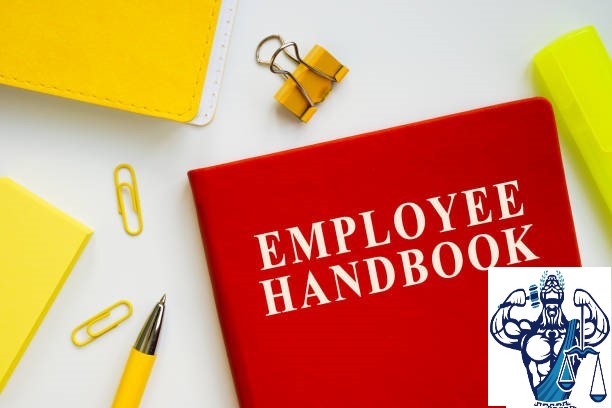Here at the Law Office of Vincent Miletti, Esq. and the home of the #UnusuallyMotivatedmovement, we take pride as a resilient and dependable legal services firm, providing such services in both a traditional and online, web-based environment. With mastered specialization in areas such as Employment and Labor Law, Intellectual Property (IP) (trademark, copyright, patent), Entertainment Law, and e-Commerce (Supply Chain, Distribution, Fulfillment, Standard Legal & Regulatory), we provide a range of legal services including, but not limited to traditional legal representation (litigation, mediation, arbitration, opinion letters and advisory), non-litigated business legal representation and legal counsel, and unique, online legal services such as smart forms, mobile training, and legal marketing & development.
Still, here at Miletti Law®, we feel obligated to enlighten, educate, and create awareness about how these issues and many others affect our unusually motivated® readers and/or their businesses. Accordingly, to achieve this goal, we have committed ourselves to creating authoritative, trustworthy, and distinctive content that looks to educate and deliver in a manner that only Miletti Law® can. Usually, this content is featured as videos posted on our YouTube Channel https://www.youtube.com/channel/UCtvUryqkkMAJLwrLu2BBt6w and blogs that are published on our website WWW.MILETTILAW.COM. With the ball in your court, yours is an effortless obligation to subscribe to the channel and sign up for the Newsletter on the website, which encompasses the best way to ensure that you stay in the loop and benefit from the knowledge bombs we drop here!
As the authoritative force in Employment Law, we are committed to providing you with authoritative, up-to-date, and trustworthy content through which you can draw enlightening information to stay ahead of the game in your business. In this regard, this blog, titled “Tortious Interference Claims under the DTSA & UTSA,” is Part XV of our multi-part series on the “Enforcement of the Protection of Employers’ Confidential Information & Trade Secrets.” In Part XIV, we hammered on the “Breach of Duty of Loyalty Claims under the DTSA and/or UTSA” and mentioned that a breach of duty of loyalty occurs when an employee (such as a manager or top-level employee) utilizes their employer’s business to further their personal interests. Usually, employees are free to prepare and plan to compete against their current employees before parting ways with their employers and/or terminating their employment as long as no non-compete agreement exists. However, an employer may find it necessary to bring a claim for breach of the duty of loyalty if, leading to the actual realm of aiding a competitor or actual competition, an employee acts in a manner that goes beyond mere preparation or planning, such as misusing and/or misappropriating an employer’s trade secrets and/or confidential information.
To continue our discussion, we have hammered, in this blog and Part XV of the series, on “Tortious Interference Claims,” which is part of the common law tort claims brought under the UTSA and DTSA.
Tortious Interference Claims under the DTSA and/or UTSA
Whenever a former employee misappropriates and/or uses confidential information or trade secrets to benefit a competitor, the former employer should consider making tortious interference claims with prospective economic advantage, business relationships, and contractual relationships. It is crucial to note that courts will require an employer, as the plaintiff alleging tortious interference, to show that the defendant(s) used certain improper means or motives to act tortiously, as opposed to demonstrating that the defendant(s) engaged in legitimate competitive activity.
Moreover, in addition to capturing specifics to avoid dismissal, such as detailing and describing the action(s) of the defendant(s) that allegedly constitute interference and providing evidence that a business or contractual relationship with an identified third party exists, an employer should ensure that it has pleaded these claims with caution. Further, pursuant to the procedure outlined in the court’s local rules, the employer should apply for the impounding or sealing of any documents whose secret should be maintained to ensure that the public and the media do not access confidential information provided and disseminated through court filings. Importantly, by raiding the employer’s staff, tortious interference claims could also be brought against any competitor employer that took part in tortious interference.
Additional Common Law Tort Claims
In addition to the breach of fiduciary duty claims, breach of duty of loyalty claims, and tortious interference claims discussed in Parts XIII, XIV, and XV of this series, respectively, employers may also consider bringing additional law tort claims against employees who have engaged in the misappropriation of their former employer’s trade secrets and/or confidential information. Such claims include but are not limited to (1) unjust enrichment, (2) conversion, and (3) unfair competition. These claims will be discussed later in another blog.
In Part XVI of this series and our blog titled “Breach of Restrictive Covenant Claims under the DTSA & UTSA,” we will move the discussion forward by hammering on “Common Law Contract Claims” and the circumstances under which the breach of restrictive covenant claims could be sought to protect an employer’s trade secrets and/or confidential information from misappropriation.
Until then, stay tuned for more education, training, and legal guidance. In the interim, reach out to us with questions and/or comments on our website at the Contact Us page!
Always rising above the bar,
Isaac T.,
Legal Writer & Author.
 Professional Legal & Business Services And Representation - English & Espanol!
Professional Legal & Business Services And Representation - English & Espanol!

 314-648-2586
314-648-2586 CALL US NOW
CALL US NOW








